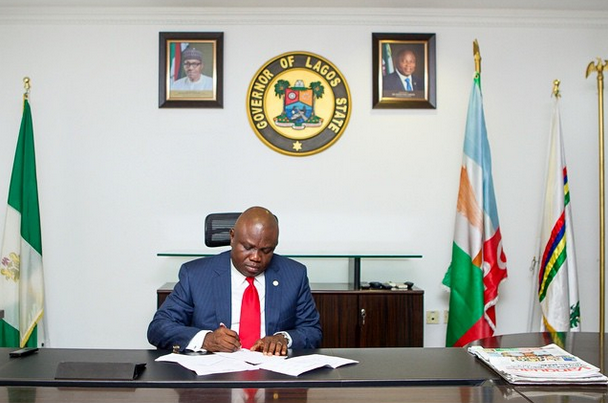According to a report by the Nigeria Extractive Industries Transparency Initiative (NEITI), the economic capital of Nigeria, Lagos generates more revenue than 33 states put together.
The reports says Lagos state recorded an IGR of N301.19 billion, a rise of N32.99 billion in one year.
The total IGR from 33 states of the federation, excluding Delta, Ogun and Rivers states stood at N299 billion — over a billion less than Lagos IGR.
Delta, Ogun and Rivers raked in N44.89 billion, N56.30 billion and N82.10 billion respectively.
Like his predecessors, Bola Tinubu and Babatunde Fashola, Akinwunmi Ambode, governor of Lagos state, has at various times committed himself to the generation of IGR in the state.
The NEITI report, which reviewed disbursements from the Federation Account Allocation Committee (FAAC) for the fourth quarter of 2016, also showed that Lagos received N109 billion in 2016.
The agency lamented low revenue generation across 34 states, citing Lagos and Ogun as the only states generating more than what they get from the central.
“IGR is very low in most states and it is only in two states – Lagos and Ogun – that IGR is higher than FAAC allocations. The figure shows that total revenue by itself cannot fund states budgets,” it said.
NEITI said the three tiers of government shared N5.121 trillion through 2016 — a decline from 2015 figures.
“Total disbursements fell by 14.8% from N6.011 trillion for the year 2015 to N5.121 trillion for 2016. In Q1 2016, total disbursements were N1.132 trillion as against N1.648 trillion in Q1 2015, a decline of 31.2% in Q1 2016,” NEITI said.
“Total disbursements fell by 26.9% from N1.241 trillion in Q2 2015 to N906 billion in Q2 2016. There was a further decline in Q3 when total disbursements dropped by 7.8% from N1.887 trillion in 2015 to N1.738 trillion 2016.
“However, total disbursements increased in Q4 by 8.8% from N1.233 trillion in 2015 to N1.343 trillion in 2016.”
The report revealed that “the federal government received a total of N2.08 trillion from the federation account in 2016, which represents a drop of 19.9% of the total N2.6 trillion received in 2015.”
The 2016 budget was for N6.06 trillion, implying that at N2.08 trillion, total FAAC disbursements were only 34.3 percent of the budget.
“Thus, the federal government would have to resort to even higher debts to fund the budget. The implication of this is that debt service payments, which accounted for 24.3% of the 2016 budget, would increase.”

